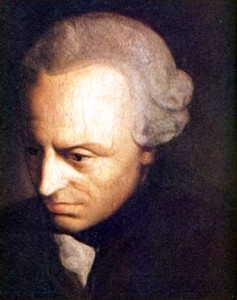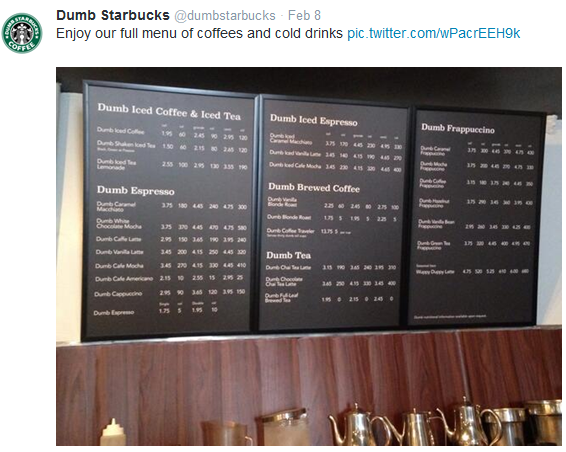After Judge Sydney Thomas advised the parties in Garcia v. Google that a judge of the Ninth Circuit has requested a vote of the full court on Google’s request to stay the recent panel decision finding a likelihood that Cindy Garcia had a separately copyrightable performance in “Innocence of Muslims,” the parties briefed the stay issue this week. Google’s merits brief on the petition for rehearing of the substantive decision is due by April 3, 2014, and any interested amicus curiae may file a brief within ten days thereafter.
Nicholas O'Donnell

Recent Posts
Cindy Lee Garcia’s Application to Copyright Office to Register Separately Her Performance in “Innocence of Muslims” Was Turned Down
Topics: Copyright
Art Law This Week at the City Bar: “Copyright Fair Use: The Importance of Being Transformative” and “Hot Topics in Art Law 2014”
Looking forward to two great art and law events this week at the New York City Bar, both at 42 West 44th Street. Hope to see many of you there!
Topics: consignment, Cariou v. Prince, Judith A. Bresler, The Importance of Being Transformative, Copyright Fair Use, P.C., Judith Prowda, authentication, Kirkland & Ellis LLP, Dean R. Nicyper, Howard N. Spiegler, Authenticity Issues and Recent Developments, Stacy Lefkowitz, Has Transformative Use Gone Too Far?, Berkeley Center for Law and Technology, Google Books, The Law Applicable to Art Consignments, Garcia v. Google, Restitution, Dale Cendali, Pamela Samuelson, Copyright, Cowan Liebowitz & Latman, Visual Arts and the Law, Berkeley Law School, Judge Denny Chin, Sotheby’s Institute, Fair Use, Richard Dannay, Art Repatriation and Restitution
Ninth Circuit Judge Asks for Panel Vote on Denial of Google’s Request for Stay in "Innocence of Muslims" Copyright Case
After last week’s ruling (wrongly decided, in our view) that an actress in "Innocence of Muslims" is likely to prevail on her claim that she had an independently copyrightable performance distinct from the movie itself, anticipation has been high about what might happen next. Google (seeking not to take the video off YouTube) petititoned the original panel unsuccessfully for an emergency stay of the ruling pending petiton for rehearing or to the full panel of Ninth Circuit judges. That stay request was swiftly denied, except that Google was permitted to leave up clips that did not include Cindy Garcia’s performance.
Topics: General Order 5.4(c)(3), YouTube, Innocence of Muslims, Cindy Garcia, Copyright, Ninth Circuit, Sydney Thomas, Google
"Innocence of Muslims" Copyright Decision Against Google Could Put Distribution of Nearly Any Movie at Risk
Last year, the Ninth Circuit stood out amongst fair use decisions in its opinion in Seltzter v. Green Day, particularly in contrast to what has persuasively been dubbed the Second Circuit’s "know it when we see it" approach to transformativeness as annunciated in the Cariou v. Prince decision. By contrast, the potentially destabilizing effect of the Ninth Circuit’s highest profile copyright case in 2014 can scarcely be overstated. Unless and until the full court reverses a three-judge panel in Garcia v. Google, Inc., nearly every motion picture will be in peril of "infringement." The consequences for the First Amendment and for free expression would be devastating. Although it was not raised, expect fair use to come into play if the decision stands and the case heads back to the trial court. The film is clearly transformative precisely because the plaintiff argues that her performance was unknowingly changed in service of a message she found offensive.
Topics: Walter Sobchak, Copyright Act, Feist, Prince v. Cariou, Libya, Digital Millennium Copyright Act, DMCA, Youssef, YouTube, Innocence of Muslims, Green Day, Seltzter v. Green Day, Nothing Compares 2 U, prior restraint, 17 U.S.C. § 106, Cindy Garcia, Copyright, Prince, First Amendment, Google, Sinead O’Connor, Benghazi, work for hire
U.S. Again Asks Court to Ignore Russian Defiance of Chabad Judgment, and for Advance Notice to Hinder Plaintiffs’ Exercise of their Rights
In response to the recent request by the Agudas Chasidei Chabad plaintiffs for an interim judgment on the compounding sanctions judgment for the Russian Federation’s refusal to comply with a 2010 judgment to return the ancestral library of the movement’s leader (Rebbe), the United States has filed a statement of position and asked the U.S. District Court to ignore Russia’s willful defiance of that judgment. The statement of position cites some credible post-judgment remedy law, but it is mostly a re-hashing of the previously statement filed by the U.S. which the court declined to adopt when it sanctioned the Russian defendants last year. The U.S. position also continues to argue that letting diplomatic avenues run their course is the prudent move, even though there is not the slightest indication that Russia is paying U.S. diplomats any mind whatsoever. More worriedly, the U.S. asks that the plaintiffs be required to advise the government before taking any further action. It is hard to avoid the irony that the United States is asking for an order that its citizens be required to advise the government of their intent to vindicate their rights against Russia.
Topics: Yossarian, Immanuel Kant, Foreign Sovereign Immunities Act, Rebbe, Agudas Chasidei Chabad, Catch 22, Categorical Imperative, Russian Federation, FSIA, Restitution, IFSA, Foreign Sovereign Immunities, Joseph Heller, Immunity from Seizure Act
Germany Itself Exhibited in the United States Dozens of Works from Hildebrandt Gurlitt in 1956
There have been occasional references during the Gurlitt affair to the possiblity that some of the paintings seized from Hildebrand Gurlitt's apartment had been exhibited in the United States. Details have been sparse. With a copy of the out-of-print catalogue from that exhibition now in hand, however, we can start to identify the scope of this U.S. contact—and thus the basis for possible claims against Gurlitt and/or the Federal Republic of Germany by those paintings' original owners or heirs. Until the disclosures by the Gurlitt Task Force are complete, it remains to be seen which.
Topics: Schwabinger Kunstfund, Max Beckmann. www.lostart.de, Lempertz, Cornelius Gurlitt, Nolde, Gurlitt Task Force, Art Association for the Rhineland and Westphalia, Gurlitt Collection, Lion Tamer, Hildebrandt Gurlitt, Entartete Kunst, Restitution, Kirchner, Kandinsky, World War II, German Watercolors Drawings and Prints, Löwenbändiger, Kunstverein Düsseldorf, A Loan Exhibition Sponsored by the Federal Republi, Franz Marc, Large Horse, Federal Republic of Germany, Raubkunst, Zandvoordt
The Gurlitt Counteroffensive Continues: Complaint Filed for Return of Paintings
According to multiple news reports and his attorneys, Cornelius Gurlitt has filed a complaint for the return of the paintings seized in 2012 by the Augsburg prosecutor. Copies are not yet available, but the Gurlitt PR website www.Gurlitt.info" has a release that states as follows (thus far only in German). Stay tuned for developments if and when the document becomes available.
Topics: Schwabinger Kunstfund, Complaint, Nazi stolen art, Hannes Hartung, Hildebrand Gurlitt, Gurlitt Info, www.Gurlitt.Info, Augsburg, Germany, Tido Park, Gurlitt Collection, Beschwerde, Entartete Kunst, Gurlitt Facts, Beutekunst, Gurlitt, Restitution, Statute of Limitations, World War II, Derek Setz, degenerate art, Staatsanwalt, Strafprozessordnung (StPO) Paragraph 304, Soviet Union, Raubkunst, Verjährung, Münchner Kunstfund
Legal Issues in Museum Administration, March 19-21, 2014 in Philadelphia
Registration is open for the annual Legal Issues in Museum Administration conference organized by the American Law Institute’s Continuing Legal Education. Year after year, this conference brings together top practitioners and museum professionals for important updates and presentations, and always engaging discussions. Hope to see you there.
Topics: Smithsonian Institution, Brendan Connell Jr., India Pinkney, The Frick Collection, Jiyun Cameron Lee, The Barnes Foundation, Dallas Museum of Art, Marianna Horton Mermin, Lawrence H. Berger, Robert W. Clarida, Alison Lonshein, James B. Pritchard Professor of Archaeology, Philadelphia Museum of Art, University of Miami School of Law, American Alliance of Museums, Stephen W. Clark, Library of Congress, Stephen K. Urice, Yayoi Shionoiri, Michael J. Cooney, Lauryn H. Guttenplan, Karen Coe, Julie Hart, Roger I. Ideishi, the Metropolitan Museum of Art, Marsha Shaines, Cristina Del Valle, Judith E. Leonard, Eryn Starun, Penn Museum of Archaeology and Anthropology, Nicholas S. Holmes, Temple University, Sara Geelan, The J. Paul Getty Trust, John R. Cahill, Events, Jonathan A. Segal, Rachelle Browne, University of Pennsylvania, Solomon R. Guggenheim Museum, The Franklin Institute, Adine Varah, Eric J. Snyder, City and County of San Francisco, C. Brian Rose, National Endowment for the Arts, United States Holocaust Memorial Museum, Maxwell L. Anderson, Whitney Museum of American Art, Larry Dubinski, Leslie Johnston, Farleigh Earhart
"Dumb Starbucks" Indeed a Prank, Health Department is Not Amused
As we suspected, the "Dumb Starbucks" store in Los Angeles claiming a right to copy Starbucks's logo and store design by relying on fair use turned out to be a prank after all (bolstered, as I did not realize yesterday by the fact that despite what the store said about selling coffee, they were actually just giving it away). It turns out that Nathan Fielder of Comedy Central was behind the whole thing, for use on his show "Nathan for You." Less funny for him was that yesterday the Los Angeles Board of Health closed the store for distributing food products without the proper licence.
Topics: Nathan for You, art gallery, Nathan Fielder, Dumb Starbucks, Copyright, Starbucks, Fair Use
Is "Dumb Starbucks" an Art Gallery in the Eyes of the Law?
News that a coffee shop had opened in Los Angeles entitled "Dumb Starbucks" has again raised the proper interpretation of fair use under U.S. intellectual property law into the realm of popular culture and commerce. Whereas last year’s Beastie Boys/GoldieBlox dustup (still ongoing) revolved primarily around copyright law, here the potential issue is one of trademark infringement. To stave off accusations of liability, the new enterprise has preemptively labeled itself an "art gallery." Will this hold up? Even Starbucks seems puzzled.
Topics: 505 U.S. 763, parody, Landham Act, Weird Al Yankovic, @dumbstarbucks, Green Day, Bad Starbucks, 17 U.S.C. § 107, 15 U.S.C. § 1115(b)(4), GoldieBlox, Copyright, Dr. Evil, Starbucks, Number Two, Twitter, Two Pesos Inc. v. Taco Cabana Inc., Beastie Boys, Fair Use, Merriam-Webster, Austin Powers





